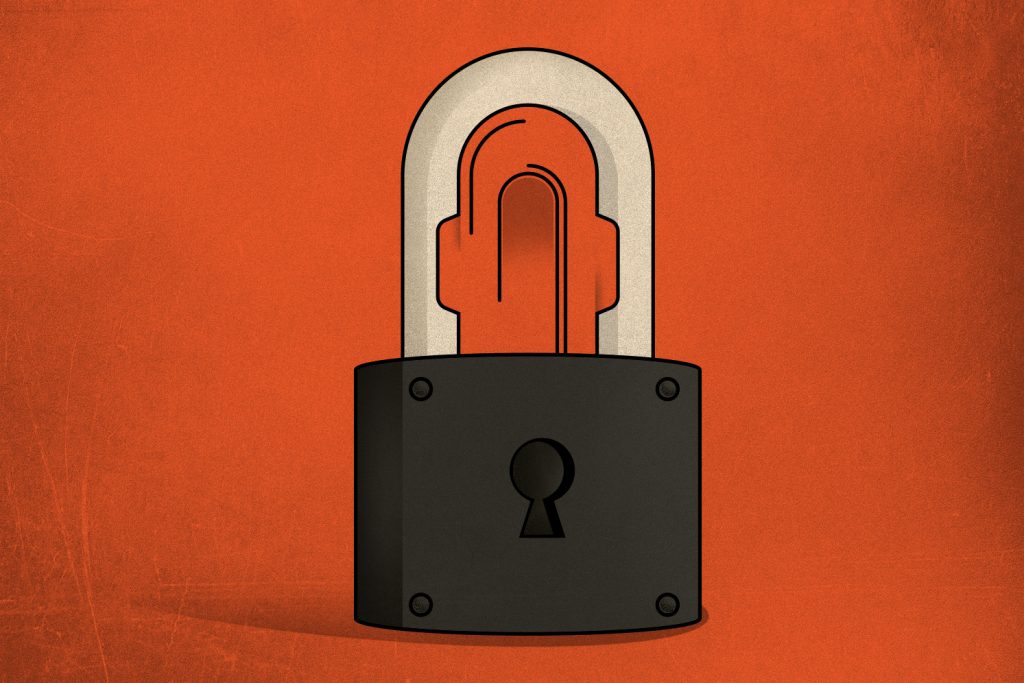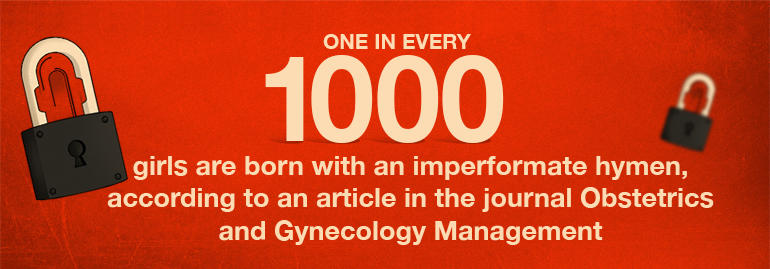KARACHI: The Mickey Mouse clock above my head shows that it’s a little before two in the afternoon. I am supposed to be at school right now. A team of four doctors, draped in green scrubs, stand near my feet. They scrutinise my privates as they shuffle scissors and scalpels. Although this has become a standard practice in the last few weeks, I still flinch with discomfort.
Surgical instruments clink against each other, as they are dropped onto a pale white cloth. My cheeks grow warm; I think I may have turned crimson with embarrassment. But no one seems to notice. The IV cannula on my wrist is whacked repeatedly for the positional flowing of general anesthesia. Instead of pushing it deeper into my vein, the incessant smacking is tilting the needle into jabbing my bone. I hold my breath against the pain. There is blood accumulating in the IV. I open my mouth to complain but I have forgotten what I want to say.
“She is slipping away,” whispers one doctor to another.
The doctor’s words, now playing in a loop, remind me of my teacher’s high-pitched voice. What time is it? I wonder. The distance between the cartoon clock and me is increasing; how did I get here? I try to remember. Make it stop, I want to scream as my heart uncontrollably pounds in my ear.
The moment eventually passes. Knocking into the void of my unconscious, where I will stay for a while, I carry with me a recollection of the diagnosis that got me here: a rare condition called an imperforate hymen.

At the age of 13, my pubescence was interrupted by a congenital vaginal anomaly: a physiological state where a girl’s hymen is without a normal central opening. This obstructs the natural flow of menstrual blood, despite its regular production in the uterus. While girls my age were ‘hitting’ puberty, I on the other hand was being hit by it.
In school, it was a rite of passage for a girl to ‘mysteriously disappear’ from class. Only to be found 30 minutes later at the school clinic, waiting to be handed her first sanitary napkin box. Her arrival to ‘womanhood’ met with giggles and stares by her peers. Upon her return to the classroom, she was banished to a quiet corner and allowed to rest, from where she bore witness to the murmurs erupting all around her.
“Did you see her?” someone would ask excitedly.
“Yes, her shalwar had blood stains,” was the provided response.
Those less aware of what lay in their near future, went about assuming that the disappearing act was due to an illness, until they too were faced with excruciating cramps.
I never found myself intrigued by these discussions, nor did I become the subject of one. For me, the process of puberty was marked by a detachment from the concept of femininity itself. When I turned 10, I threw away my frocks and dresses, and replaced them with baggy jeans and flannels. In retrospect, my younger self had done away with my gender as well as its accessories.
My relatives laughed at my choices, saying the onset of menstruation would set things in perspective for me. However, as I later discovered, I did not have that going for me either.
At the age of 13, my pubescence was interrupted by a congenital vaginal anomaly
According to an article in the journal, Obstetrics and Gynecology Management, an imperforate hymen occurs in approximately one out of a 1,000 newborn girls. Often misdiagnosed as distal vaginal atresia or low transverse vaginal septum in adolescent girls, the condition may be fatal if the wrong surgical procedure is performed.
Unaware of my problem at the time, I ignored the lower abdominal pain and nausea I was constantly experiencing. These symptoms, coupled with back pain and constipation, did not seem serious enough to be reported to my mother, who happened to be a gynecologist.
It would just mean signing up for a series of blood tests and medicines. Thus, I kept finding excuses to avoid telling her what was going on, assuming it was nothing – until the summer of 2007 when hiding it from her was no longer an option.
It happened on a Sunday morning, when my parents and I were about to leave for church. I was dressed in a white buttoned-down shirt and black trousers.
“Your father is downstairs, starting the car. Hurry,” my mother asserted. I told her I will be out in a minute as I rushed to the bathroom.
Fifteen minutes later, my mother found me sitting on the toilet floor: my crisp white shirt soaked in sweat, and my face covered in tears and snot. “My bladder is full but I cannot pee, mom,” I told her between loud, convulsive gasps. Her face hardened with concern and suspicion, but she said nothing. Instead, she helped her teenage daughter, who had somehow regressed onto her earliest developmental stage, to the commode and encouraged me to try again.
I sat on that toilet seat, using every ounce of energy I could muster, to pass urine. But I failed. In the aftermath of acute urinary retention, a phone call was made to my father with a list of items that were required from the pharmacy: a catheter, some tissues, and gloves. What followed was pure trauma, to say the least.
The black and white film of my internal organs turned pitch black when the ultrasound probe reached my pelvis. My sonologist Dr. Tanveer Zuberi, nodded at my mother as if reassuring that her suspected diagnosis was correct.

A series of ultrasounds revealed the presence of a ball of blood along the extent of my vagina. The vacuum represented a hydrometrocolpos, a medical term given to a blood filled dilated vagina within the uterine cavity: a fluid that required draining with a hymenectomy surgery.
“Am I a boy?” I asked my mother, still staring at the ultrasound machine screen.
“Are you crazy?” she scolded me. “There are other girls who face this too,” she reluctantly added.
Dr. Zuberi furthered my mother’s statement by providing additional facts. “I had a 20-year old, married patient who never got her period,” she told me, looking right into my eyes. “You should feel lucky your mother is a gynecologist who caught this very early on,” she went on to say. Obviously, being lucky was one thing that had not crossed my mind, at the moment.
They told me the procedure was short and simple.
The imperforate hymen would be opened from the center with scissors or a scalpel, and the excess tissue cut away. The incision will then be sutured with absorbable sutures to prevent bleeding. To me, however, it sounded neither short enough to cope with nor simple enough to fathom.
For me, the process of puberty was marked by a detachment from the concept of femininity itself
Seven days later, when I opened my eyes in the recovery room of Atia Hospital, I thought about what I had asked my mother earlier. She was right; it was ignorant of me to think I was a boy.
I am a woman, I suddenly realised, as I noticed period blood dripping onto the hospital sheets. Nurses covered me up so my father could be allowed to see me. He had been crying, I could tell.
After all, having to see his only child suffer from something, he could not even question her about, must have been distressing to say the least.
“Are you okay?” were the only words that could roll off his tongue.
Still groggy with the fading anesthesia, I barely nodded my head and smiled.












